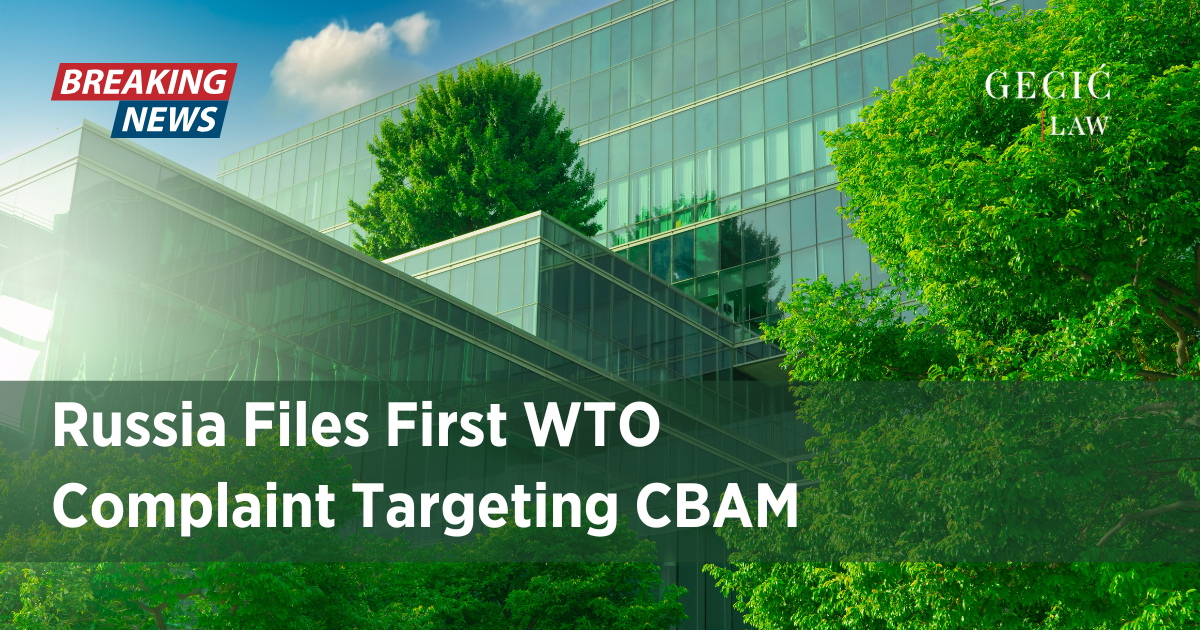

On May 12, 2025, the Russian Federation formally launched consultations at the World Trade Organization (WTO) against the European Union’s Carbon Border Adjustment Mechanism (CBAM). This concurrently marks the first major legal challenge to CBAM, the EU’s flagship climate-trade instrument.
Russia argues that CBAM violates core WTO rules. It claims that the regulation protects EU industries under the guise of climate action. The dispute therefore raises critical questions about the legality of linking trade and climate policy.
Russia calls CBAM a disguised restriction on trade, saying the mechanism burdens non-EU exporters with complex rules and extra costs. These costs thus resemble tariffs but lack WTO approval.
Russia also claims that CBAM unfairly exempts certain countries like Norway and Switzerland. It objects to the EU’s use of default carbon values and unilateral verification rules.
In addition, Russia challenges the free emission allowances that EU firms receive, arguing that these act as export subsidies. This violates the WTO’s Subsidies and Countervailing Measures (SCM) Agreement.
Russia bases its complaint on several WTO agreements:
GATT 1994 – Violations of non-discrimination and tariff commitments
SCM Agreement – Prohibited subsidies contingent on export performance
Import Licensing Agreement – Excessive and unclear requirements
Accession Protocols – Breach of WTO commitments by EU member states
The complaint details how CBAM and the EU ETS distort competition. It also criticizes the administrative burden on foreign producers and importers.
This case could shape the future of climate-linked trade policy. WTO members must therefore now consider how far environmental goals can stretch under trade rules.
If a panel proceeds, the ruling may define the boundary between legitimate climate measures and protectionism. The world is certainly watching and the outcome could affect their own carbon pricing and border measures.
Russia’s WTO challenge strikes at the heart of CBAM, as it tests whether climate policy can justify trade barriers. The legal and political stakes are certainly high and this dispute could reset the global conversation on climate and trade.
To access a PDF document of the full Request for Consultations, click this link.